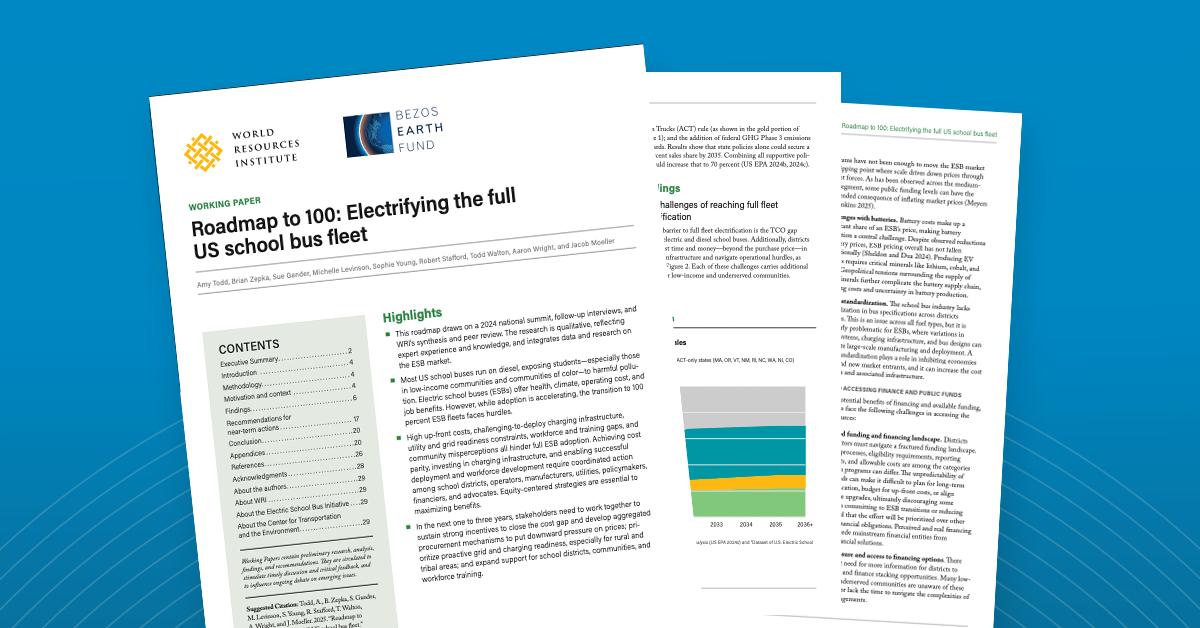Fleet transition plans evaluate the feasibility of zero-emission technologies and provide fleet operators with a comprehensive framework to make informed decisions regarding the deployment of zero-emission vehicles and infrastructure. These blueprints consider service requirements, energy demands, procurement schedules, infrastructure requirements, and operating and maintenance costs while incorporating input from key community stakeholders. Allocating funds to develop and regularly update these plans guarantees that service and infrastructure needs are efficiently met, resulting in smooth and cost-effective transitions to zero-emission vehicles.
Read more about our recent advocacy efforts:
Blog Post: "Zero-Emission Transition Planning: Arriving Soon at US Airports"→
Report: "A Zero-Emission Transition for the US Transit Fleet, Requested Senator Chuck Schumer (D-NY) and Senator Sherod Brown (D-OH)"→
Position Paper: "The Need for Electric School Bus Fleet Transition Planning"→
Blog Post: "USPS Fleet Electrification: Plan First, Deploy Second"→
Submitted Comments: "Response to the United States Postal Service’s Supplemental Environmental Impact Statement Regarding the Need for Fleet Transition Planning"→











